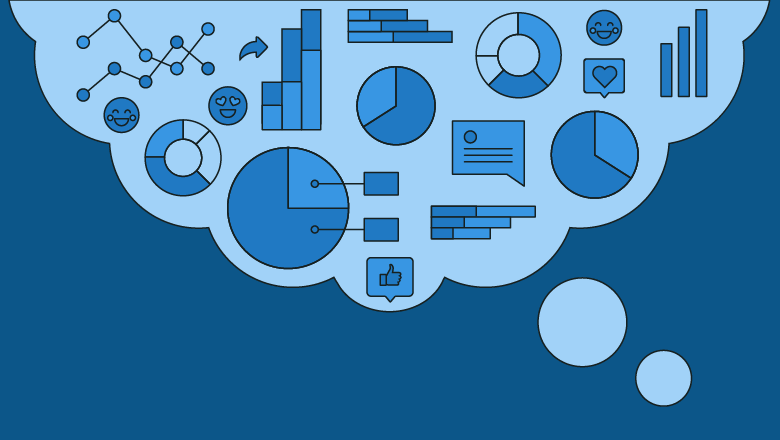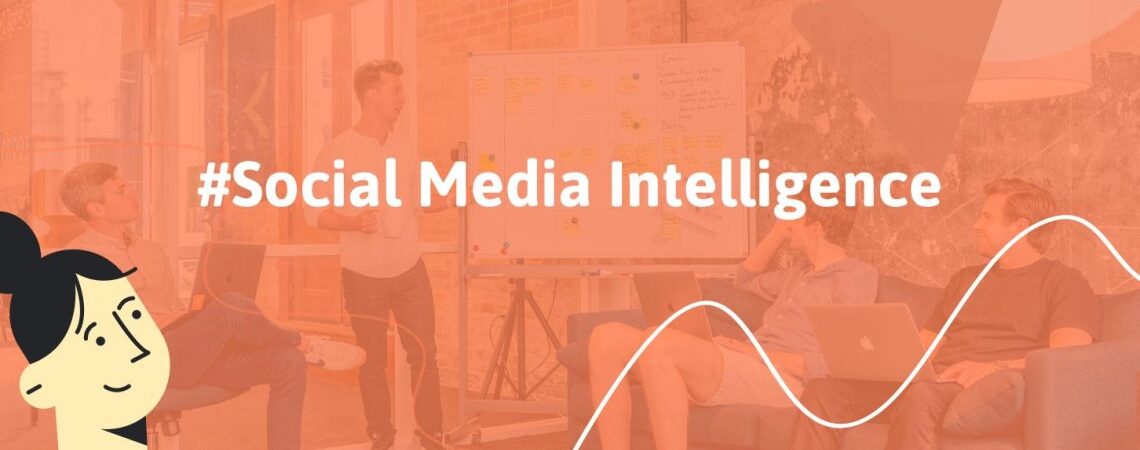Social media has transformed the way we communicate, connect, and consume information. With billions of users actively engaging on various platforms, it has become an indispensable tool for businesses, individuals, and even governments. However, the sheer volume of data generated on social media can be overwhelming to navigate and make sense of. This is where social media intelligence comes into play, empowering organizations to harness the power of digital insights for strategic decision-making. In this article, we delve into the world of social media intelligence, exploring its definition, benefits, and practical applications.
Introduction to Social Media Intelligence

Social media intelligence, also known as social media monitoring or listening, refers to the process of collecting and analyzing data from various social media platforms to extract valuable insights. It involves monitoring online conversations, trends, and user sentiment to understand public opinion, consumer preferences, and market dynamics.
The Importance of Social Media Intelligence for Businesses
In today’s hyper-connected world, social media intelligence has emerged as a vital tool for businesses across industries. By leveraging the wealth of information available on social media, companies can gain a competitive advantage and drive strategic decision-making. Here are some key reasons why social media intelligence is crucial for businesses:
Understanding Consumer Behavior and Preferences
Social media provides a treasure trove of consumer insights. By analyzing user-generated content, businesses can gain a deep understanding of their target audience’s needs, preferences, and pain points. This knowledge allows companies to tailor their products, services, and marketing strategies to better meet customer expectations.
Monitoring Brand Perception and Reputation
A strong brand reputation is essential for business success. Social media intelligence enables organizations to track conversations and sentiments about their brand in real-time. By identifying both positive and negative sentiments, businesses can proactively address issues, manage crises, and protect their brand image.
Competitive Analysis and Market Research
Social media intelligence provides a wealth of competitive intelligence. By monitoring competitors’ social media activities, businesses can gain insights into their strategies, product launches, and customer feedback. This information helps identify market gaps, spot emerging trends, and stay one step ahead of the competition.
Understanding Social Media Listening
Social media listening involves monitoring and analyzing conversations happening across various social media platforms. It goes beyond tracking brand mentions and involves understanding the context, sentiment, and themes of these conversations. Advanced social media listening tools employ natural language processing (NLP) and machine learning algorithms to sift through vast amounts of data and extract meaningful insights.
Gathering Data: The Art of Listening
Social media listening begins with data collection. This involves monitoring mentions, hashtags, keywords, and relevant topics related to a brand, industry, or specific campaign. The data collected can include text, images, videos, and other forms of user-generated content.
Analysis: Extracting Insights
Once the data is collected, the next step is analysis. Social media intelligence tools use advanced algorithms to analyze the data, identify patterns, and extract insights. This can include sentiment analysis, trend identification, and identifying key influencers.
Actionable Insights: Driving Decision-Making
The ultimate goal of social media listening is to generate actionable insights. These insights can inform marketing strategies, product development, customer service improvements, crisis management, and more. By making data-driven decisions, businesses can optimize their performance and stay ahead of the curve.
Sentiment Analysis: Decoding User Emotions
Sentiment analysis is a crucial component of social media intelligence. It involves using NLP and machine learning techniques to determine the sentiment behind social media conversations. By analyzing user emotions, businesses can gauge how their brand, products, or services are perceived by the public.
The Power of Positive Sentiment
Positive sentiment can be a strong indicator of brand loyalty and customer satisfaction. By identifying positive sentiment, businesses can amplify positive experiences, engage brand advocates, and reinforce positive perceptions of their brand.
Addressing Negative Sentiment
Negative sentiment can quickly escalate and harm a brand’s reputation. Social media intelligence allows businesses to identify negative sentiments in real time and address customer concerns promptly. This proactive approach demonstrates a commitment to customer satisfaction and helps prevent potential crises.
Trend Analysis: Spotting Emerging Patterns
Social media is a hotbed of trends and emerging patterns. By monitoring conversations, hashtags, and influencers, businesses can identify emerging trends and capitalize on them. Trend analysis allows organizations to adapt their marketing strategies, launch timely campaigns, and align their offerings with the evolving needs of their target audience.
Competitive Analysis: Gaining an Edge
Staying competitive requires a deep understanding of the market landscape and competitors’ activities. Social media intelligence provides a wealth of competitive insights, enabling businesses to benchmark themselves against their rivals, identify gaps in the market, and uncover untapped opportunities. By analyzing competitors’ social media strategies, businesses can refine their approaches and gain a competitive edge.
Influencer Identification and Engagement
Influencer marketing has become a powerful strategy for brands to reach their target audience authentically. Social media intelligence helps identify key influencers who have a significant impact on their followers’ purchasing decisions. By collaborating with influencers and leveraging their reach, businesses can enhance brand visibility, build trust, and drive conversions.
Crisis Management: Navigating Choppy Waters
In today’s fast-paced digital landscape, crises can arise unexpectedly. Social media intelligence equips businesses with the tools to detect and address potential crises swiftly. By monitoring online conversations and sentiments, organizations can identify brewing issues, mitigate risks, and take proactive steps to manage and resolve crises effectively.
Social Media Listening Tools and Platforms

A wide range of social media listening tools and platforms are available to assist businesses in their data collection, analysis, and monitoring efforts. Some popular tools include Brandwatch, Hootsuite, Sprout Social, and AIM Insights. These tools offer features such as sentiment analysis, trend tracking, competitive analysis, and influencer identification.
Data Privacy and Ethics
As social media intelligence relies on collecting and analyzing user-generated content, it is crucial to prioritize data privacy and ethical considerations. Businesses must ensure compliance with relevant data protection regulations, respect user privacy, and use the data collected responsibly and transparently. Transparency in data usage builds trust with customers and strengthens brand reputation.
Social Media Intelligence for Government Agencies
Government agencies can also leverage social media intelligence to enhance decision-making and public services. By monitoring public sentiment, tracking emerging issues, and identifying trends, government agencies can proactively respond to citizens’ needs and concerns. Social media intelligence can assist in areas such as crisis management, policy development, public opinion analysis, and emergency response. By harnessing the power of digital insights, government agencies can better serve their constituents and make informed decisions that positively impact society.
Social Media Intelligence and Brand Reputation Management
Brand reputation is a valuable asset that requires careful management. Social media intelligence plays a vital role in brand reputation management by monitoring brand mentions, sentiment, and customer feedback. By promptly addressing any negative sentiment or concerns, businesses can protect their brand image, maintain customer trust, and foster positive brand perceptions. Social media intelligence allows brands to be proactive in managing their online reputation and maintain a strong presence in the digital landscape.
Social Media Intelligence in Market Research
Market research is essential for understanding consumer behavior, market trends, and competitive dynamics. Social intelligence offers a unique and powerful approach to market research by providing real-time insights directly from the target audience. By analyzing conversations, sentiment, and user-generated content, businesses can gain a comprehensive understanding of market preferences, identify emerging trends, and uncover new opportunities for growth and innovation.
Future Trends
The field of social intelligence is continuously evolving. As technology advances, new tools, and techniques will emerge, enabling businesses to extract even more valuable insights from social media data. Artificial intelligence, machine learning, and natural language processing will play significant roles in improving data analysis accuracy and efficiency. The integration of social media intelligence with other data sources, such as customer relationship management systems and market research data, will provide a holistic view of consumer behavior and market dynamics.
Conclusion
In conclusion, social intelligence empowers businesses to make informed decisions by leveraging the vast amount of data available on social media platforms. By understanding consumer behavior, monitoring brand reputation, identifying trends, and staying ahead of the competition, organizations can unlock new opportunities and drive their success in the digital landscape. Embracing social intelligence is crucial in today’s interconnected world, where data-driven insights are paramount.
Ready to unlock the power of social media intelligence for your business? Request a demo from AIM Technologies today and discover how our cutting-edge tools and expertise can drive your strategic decision-making.
FAQs
Q1: What is social intelligence?
- Social intelligence refers to the process of collecting and analyzing data from social media platforms to extract valuable insights for strategic decision-making.
Q2: How can social intelligence benefit businesses?
- Social intelligence can benefit businesses by providing insights into consumer behavior, brand reputation management, competitive analysis, trend identification, and crisis management.
Q3: What is sentiment analysis in social media intelligence?
- Sentiment analysis is the process of determining the sentiment or emotion behind social media conversations. It helps businesses understand how their brand, products, or services are perceived by the public.
Q4: What role does social intelligence play in market research?
- Social intelligence offers a unique approach to market research by providing real-time insights directly from the target audience. It helps businesses understand market preferences, identify emerging trends, and uncover new growth opportunities.
Q5: What does the future hold for social intelligence?
- The future of social intelligence will see advancements in technology, such as AI and machine learning, leading to more accurate and efficient data analysis. Integration with other data sources will provide a holistic view of consumer behavior and market dynamics.




